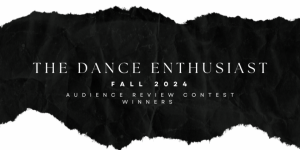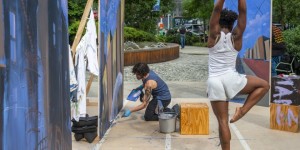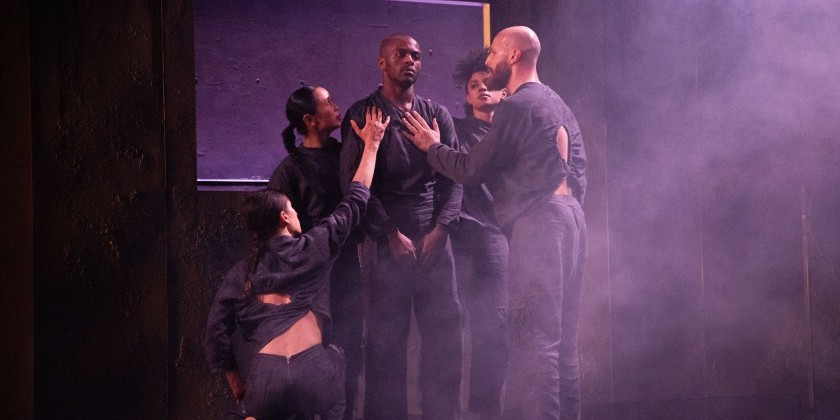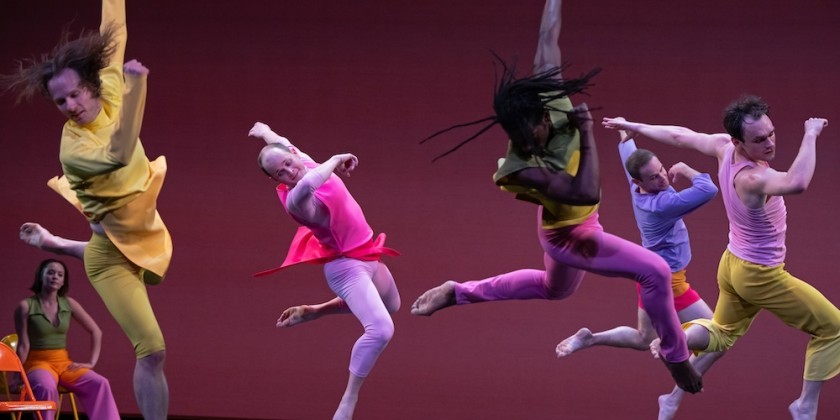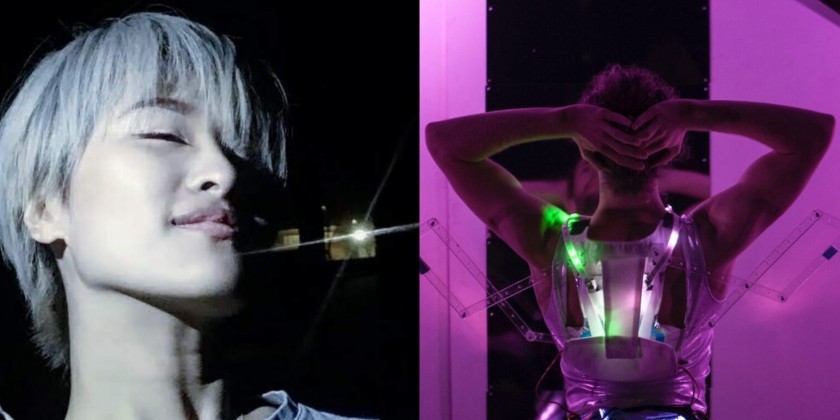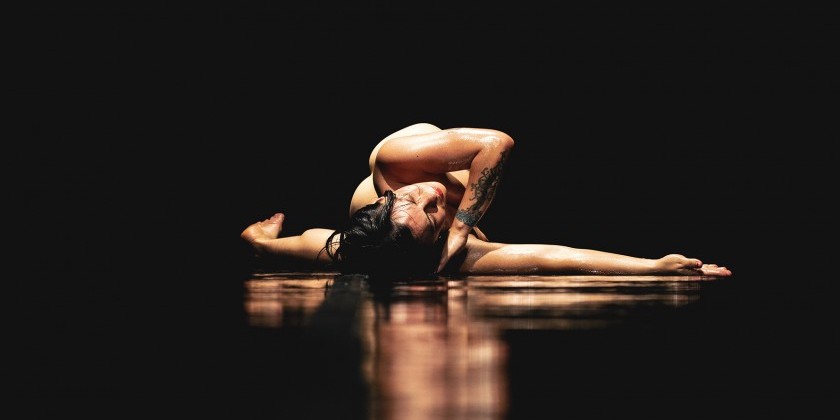Impressions of Brodsky/Baryshnikov
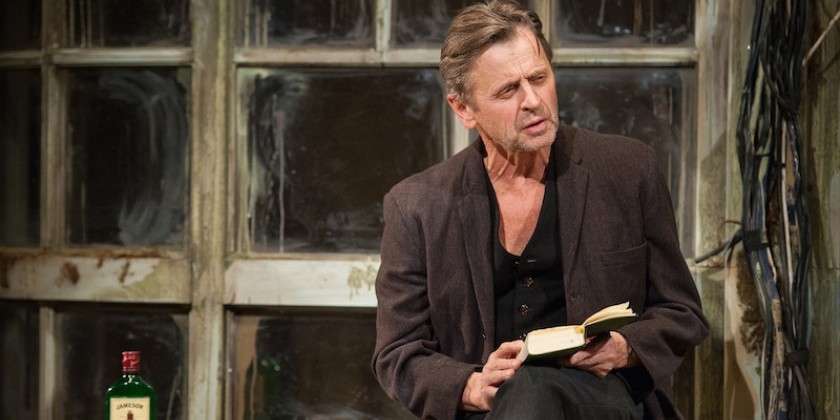
A One Man Duet
Baryshnikov Arts Center, New York
March 11, 2016
Directed by Alvis Hermanis
Performed by Mikhail Baryshnikov
Poems of Joseph Brodsky
Translated by Jamey Gambrell
Mikhail Baryshnikov's one-man show at the Baryshnikov Arts Center, titled Brodsky/Baryshnikov, is actually a duet — a communion between Baryshnikov and his deceased friend, the Russian poet Joseph Brodsky. Latvian director Alvis Hermanis, who has served as artistic director of The New Riga Theater since 1997, teamed up with Baryshnikov to produce the show. It was first performed in Riga, Latvia, last October, and is in Russian with English superscript.
Brodsky/Baryshnikov uses the text of Brodsky's poems — both recordings of Brodsky's voice and live performance by Baryshnikov — to animate the presence of the mournful writer and thinker. Sometimes, Baryshnikov embodies Brodsky, while at other moments they seem to share the stage companionably. They were great friends, after all. The two men were introduced to each other in New York in the mid-1970s and were both expatriates: Baryshnikov famously defected, while Brodsky was forced from the Soviet Union due to the government’s displeasure with his poetry.
While a majority of the evening is devoted to text, Brodsky/Baryshnikov isn't entirely a play. And it's definitely not an evening of dance. The poetry is recited, but not really performed. These partial offerings don't add up to a shortcoming, though. Instead, the mixed forms create a liminal space where conjuring is possible. Often, Baryshnikov talks to himself, and as his voice trades off with recordings of Brodsky reading his poems, Baryshnikov's identity blurs while Brodsky's comes into focus.
A rusting and abandoned greenhouse sets the stage. Baryshnikov enters as a traveler with a suitcase, which he empties throughout the show, pulling out books and, eventually, a towel and a clock. He sits or lies down on a bench, reciting poetry or reading it from one of the books. Relaxed, casual, introverted, when he steps inside the greenhouse, his energy shifts and he becomes electrified, or sluggish, as the poetry dictates. His physicality, rather than his voice, is on display.
Though the movement isn’t dance, per se, it projects a rhythmic, external expression of emotion. In one intense segment, Brodsky's voice reads a poem about a horse so black it appears monstrous, while Baryshnikov performs stylized flamenco movements. In that moment — when little was happening, yet I was holding my breath, perched on the edge of my seat — it was plain to see why both artists are considered titans of their respective forms.

Hermanis selected and arranged the play’s text, choosing over 40 poems from more than 40 years of Brodsky’s work. Some were performed in their entirety, while others were only featured by a line or two. This non-chronological order resulted in a semi-sensical, mystical, one-sided conversation, rather than a career retrospective.
One of this performance’s greatest gifts is the translation, by Jamey Gambrell, which is projected as a superscript above the greenhouse. Some of Brodsky’s early poems have never before been translated into English, making a once-in-a-lifetime experience for monolingual readers. However, the superscript format forced those same readers to make the deeply annoying choice between looking at the text and looking at Baryshnikov.
I often gave up on the meaning of the words, especially during extended passages, so I could watch Baryshnikov’s physical interpretation. Those who understood Russian didn’t have to divide their attention among the many nuances of this gorgeous ghost story, reincarnation, and farewell.




